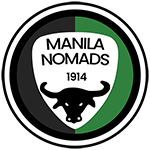Full Name: Bianca Natola
Nick Name: Stick
Place of birth: Manila
Current City: Canlubang
Years in rugby: 1 year
Position: I don’t know but I’ve played Flanker, Winger, Fullback, Lock
Superpower: I look like Steve Aoki
Tell us about yourself and what you do outside rugby?
For work, I manage and own a creative digital agency called GetSocial Digital, Inc. I’m also a representative to the ASEAN as a director for the Philippine Youth Entrepreneurship Association and Creative Director for the first local LGBTQ dating app. We’re launching in pride month! I love all things tech and visual. I’ve worked as a graphic designer and videographer for television networks and as a photographer. Aside from rugby, I really love running, cycling, and swimming. I love the mental strength and focus you learn from endurance sports. I love the emotions and team dynamics on the rugby pitch—anything can happen—it’s very exciting and super fun. You can’t just think of yourself. Everyone is only as good as the person beside you.
When and how did you start with Manila Nomads?
I was drawn to the drinking (what else?!). I met them 3 or 4 years ago at my friend’s wedding. All the groomsmen were nomads, basically. Then I started with a bit of touch rugby with the Bullettes last year.
Tell us all about your experience on putting together Nomads Rogues and being captain for a year.
I came to watch at M10s last year. Little did I know that the other women watching there were going to be my future teammates! Nick Jones, who just got named captain, said he wanted a women’s contact team. A few months later, I had dinner with Guia and Clair, and we were thinking to just start it. Honestly, it was just as simple as—you need girls to drive a women’s team because girls like starting new things together to bond.
I only got into sports as an adult, and it gave me the ability to truly believe in myself, no matter my background, age, size, strength or fitness. If you decide you can, you will! I wanted to share that with others and thought starting the team was the path to it. I also noticed how inaccessible contact rugby was as a sport. There were a lot of preconceived notions about it. These social constructs actually intimidated people from trying it out. Sometimes it was as simple as family members not approving a ‘rough’ sports for girls. Anyway! I was just like: Anyone can try it, you do you! They will teach us how to fall safely! Tackle safely! We’ll be the cutest! This is the team and the sport that will accept you as you are.
Putting it together was lots of work because we tried to make it as convenient and accessible as possible. The first people I talked to were Club President Chris Anderson and Men’s Captain Nick Jones, who all wonderfully drive the team and the training and support along with Coach Fitz. A few key people were Ada Milby, Acee San Juan, Jason Chappell and now captain Melissa Jacobs. Jason helped me bring the SOS Village Alabang to the Nomads family and Melissa helped me book and work out women’s training in British School Manila, which helped increase numbers. Ada and Acee had been massive in setting up our first trial match and have been enduring in their guidance and support until now. Add a bit of persuasive powers from the first batch of Rogues girls, a lot of lobbying after touch football at the women’s bathroom, small talk at world cup games, and trapping people in the chat group Bad Bitchez (the original name of the team) was how Rogues was formed. The intention was inclusivity, empowerment, diversity, accessibility, and performance, and it evolved into this solid sisterhood and community.
I learned the most about really being a captain on the field because there are a lot of emotions while playing, and as a captain, you carry the weight of responsibility to shift those energies into the game. I honestly didn’t know how to do it and tried different approaches each time. Everyone’s so hot-headed!
I think the most challenging part was that everything happened so fast and many people who were very different from each other came together all at once. Having no experience in team sports nor leading a sports team, the birthing pains were real. But I learned a lot about myself and other people and saw the fruits of all of the work. Everything was a milestone, and It’s definitely opened lots of doors—the first women’s division at M10’s, Rogues girls on their path to the National team, strangers deepen friendships, and women saying I can go to a game and play and not just watch on the sidelines. I enjoy these today, very much!
What rugby move, skill or position is hardest for women to learn?
Rugby is a bit specialized in its positions, so it is hard to generalize difficulty. There’s a different skill set for each position, so it depends on the person—a bit of combination what you can do and how you think. Although, some background helps. I notice the girls who already have about few years of touch football, flag football or basketball have the quickest pickup, a great sense of team sports dynamics, field vision, and already have ball skills.
Any message to women who want to try rugby?
Just give it a shot. If it’s not your jam, hang out with us anyway!




